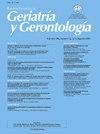[社会支持在受抚养人家庭后照顾者中的作用和功能]。
Q3 Medicine
引用次数: 0
摘要
前言和目的:社会支持似乎对后照顾者的心理健康和福祉有积极影响。因此,本研究的目的是研究感知社会支持网络及其在护理后的作用。材料与方法:对56名老年人家庭后照顾者进行半结构化访谈。此外,还采用了社会支持问卷(mos)和定性测量。对变量之间的关系进行了描述性分析。在定性层面,我们使用NVIVO程序进行现象学设计。最后,使用混合并发三角剖分设计方法(DITRIAC)对数据进行三角剖分。结果:护理后适应与感知社会支持量表各维度呈正相关。研究发现,在失去亲人期间,朋友圈会给予他们支持,创造出休闲和娱乐的空间,让失去照顾者的人能够恢复他们的社交生活。家庭单位可以移动得更近或更远。儿童对失去照顾者的人起到了支持和陪伴的作用,也是应对和适应失去照顾者亲人的动力来源。与会者强调需要感到被倾听和受欢迎。64.3%的参与者表示没有接受过心理治疗。结论:实施有利于家庭照顾者发展和维持的干预措施是必要的。本文章由计算机程序翻译,如有差异,请以英文原文为准。
Papel y función del apoyo social en los post-cuidadores familiares de personas mayores dependientes
Introduction and objective
Social support appears to have a positive impact on the mental health and well-being of post-caregivers. Therefore, the aim of this paper is to examine the perceived social support network and its role in post-caregiving.
Materials and methods
56 family post-caregivers of older people participated in a semi-structured interview. In addition, the Social Support Questionnaire -MOS- and qualitative measures were applied. Descriptive analyses of the relationship between variables were carried out. At the qualitative level, we worked with a phenomenological design using the NVIVO program. Finally, data were triangulated using the mixed concurrent triangulation design methodology (DITRIAC).
Results
Post-care adjustment was positively associated with the dimensions of the perceived social support scale. The network of friends was found to be supportive during the loss, generating spaces for leisure and recreation that allowed post-caregivers to resume their social life. The family unit can move closer or further away. Children played a role of support and companionship for the post-caregivers and are also a source of motivation to cope and adapt to the loss of the cared-for relative. Participants emph
asised the need to feel listened to and welcomed. 64.3% of participants referred to not having received psychological care.
Conclusions
It is essential to carry out interventions that favor the development and maintenance of the family caregiver.
求助全文
通过发布文献求助,成功后即可免费获取论文全文。
去求助
来源期刊

Revista Espanola de Geriatria y Gerontologia
Medicine-Medicine (miscellaneous)
CiteScore
1.90
自引率
0.00%
发文量
62
审稿时长
85 days
期刊介绍:
Una revista de gran prestigio por sus artículos originales de investigación y revisiones. Permite cubrir todas las áreas de la medicina pero siempre desde la atención al paciente anciano, y está presente en los más reconocidos índices internacionales.
 求助内容:
求助内容: 应助结果提醒方式:
应助结果提醒方式:


